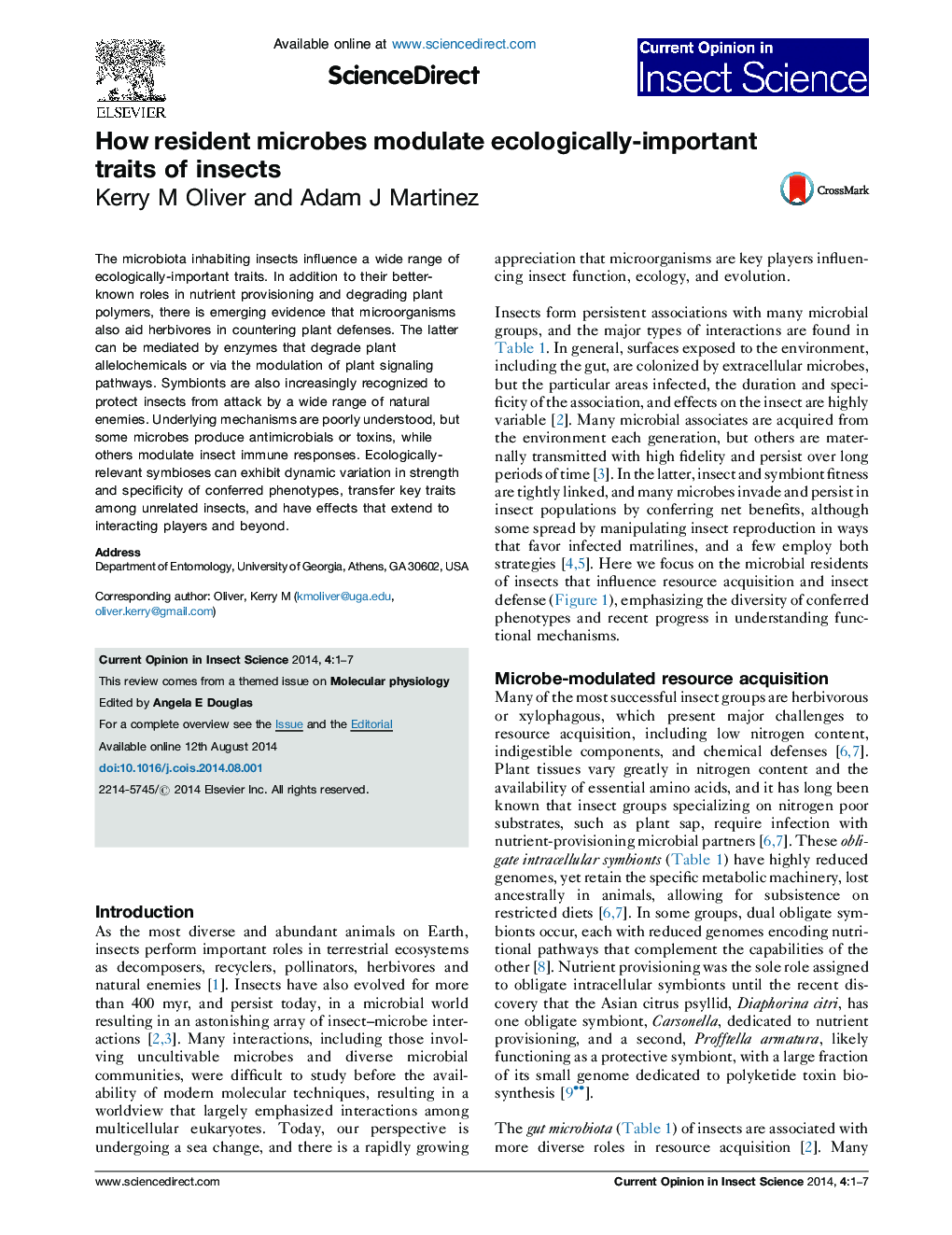| Article ID | Journal | Published Year | Pages | File Type |
|---|---|---|---|---|
| 4508281 | Current Opinion in Insect Science | 2014 | 7 Pages |
•Resident microbes can influence insect immunity and their ability to acquire resources.•Microbes often directly supply nutrients, toxins, and other bio-active compounds.•Microbes can also modulate signaling pathways that influence resource use or defense.•Symbiont-provided traits may be conditioned by environmental factors.•Effects of infection potentially extend to trophic levels above and below.
The microbiota inhabiting insects influence a wide range of ecologically-important traits. In addition to their better-known roles in nutrient provisioning and degrading plant polymers, there is emerging evidence that microorganisms also aid herbivores in countering plant defenses. The latter can be mediated by enzymes that degrade plant allelochemicals or via the modulation of plant signaling pathways. Symbionts are also increasingly recognized to protect insects from attack by a wide range of natural enemies. Underlying mechanisms are poorly understood, but some microbes produce antimicrobials or toxins, while others modulate insect immune responses. Ecologically-relevant symbioses can exhibit dynamic variation in strength and specificity of conferred phenotypes, transfer key traits among unrelated insects, and have effects that extend to interacting players and beyond.
Graphical abstractFigure optionsDownload full-size imageDownload as PowerPoint slide
